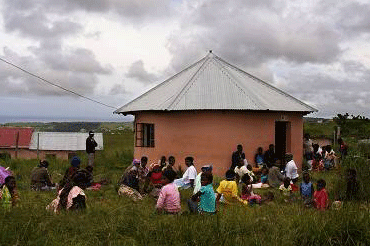Migrant Serum Bank

South African people waiting in the grass for medical care
The Migrant Serum Bank (MSB), a serum repository, was established in 2002 to provide the opportunity to understand important public health problems, such as vaccine-preventable diseases, intestinal parasites and other emerging infectious diseases that might affect migrant populations. Over 500,000 immigrants and refugees, who resettle to the US annually, are required to undergo medical examinations that address a limited number of communicable diseases of public health importance. The MSB is composed of anonymous sera remaining from blood collected for these medical screening for US-bound immigrants and refugees.
As of 2008, the MSB has obtained more than 30,000 sera from immigrants and refugees from Africa, Asia, Middle East, and Mexico. These specimens are available for investigators once a study proposal has been approved by the Division of Global Migration and Quarantine.
For additional information on MSB and request for sera, contact Deborah Lee at DLEE1@cdc.gov
RECENT USES OF SERUM BANK SPECIMENS
| Study | Start Date | Population | Objective | Publication |
|---|---|---|---|---|
| Prevalence of schistosoma and strongyloides infections—US-bound refugees | 2007 | Congolese, Liberian, Burmese | To assess seroprevalence and demographic distributions of schistosoma and stronglyoides infections | |
| Entamoeba histolytica Seroepidemiology | 2005 | Liberian, Somali, Hmong | To assess whether seropositive sera recognize epitopes in a candidate vaccine | |
| Intestinal helminth testing | 2004 | Somali | To determine the seroprevalence of schistosoma and strongloides | Posey DL, et al. High prevalence and presumptive treatment of schistosomiasis and strongyloidiasis among African refugees. Clin Infect Dis. 2007 Nov 15;45(10):1310-5. |
| Immunodot testing | 2004 | Somali, Hmong | To assess seroprevalence of vaccine-preventable diseases by using Immunodot assay | |
| Varicella seroprevalence | 2003 | Liberian, Somali | To assess varicella zoster virus antibody |
- Page last reviewed: March 29, 2012
- Page last updated: January 19, 2010
- Content source:


 ShareCompartir
ShareCompartir